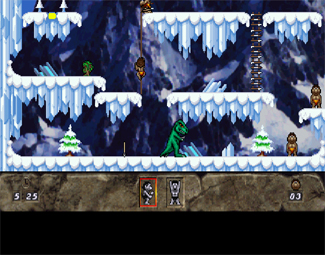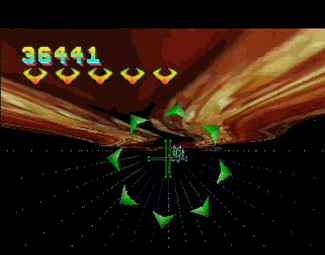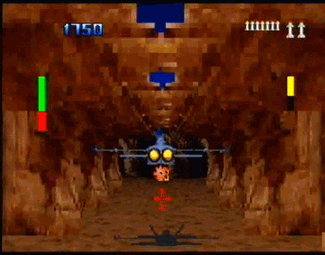

Carrie Tahquechi interview
By Ross Sillifant
(2016)
Q: You're my 1st-ever voice-over artist, Carrie, so I must start by saying just how delighted I am to be able to put the following questions to you. Could I start by please asking you to introduce yourself to our readers?
Carrie Tahquechi: My name is Carrie Tahquechi. I am married to Ted Tahquechi, who was a producer at Atari, Accolade, and Mattel over the years. While I suppose I earned the title, I don’t really see myself as your average voice-over artist. At the time I did my voice-over work, I was working full-time in the veterinary field and doing a few shows a month as a party DJ. I did the voice-over work to help out Ted at first and continued with it for fun. Life moves on and I retired from Veterinary work. I am a mom to twin boys, and I am working as a jewelry designer and App developer.
Q: I’m going to start of course by asking just how you came to be involved in the role of doing voice-overs for Atari, for a number of reasons, not only because I’ve often wondered how people 'break-into' the industry, but also because of Atari's reputation of being very <ahem> 'shrewd' shall we say, when it came to money and not having or wanting to spend the money other developers might have.
Carrie Tahquechi: In the late 80’s, I was considering a Communications minor and worked at the college radio station while pursuing my degree in Veterinary Nursing. I was an on-air DJ for drive-time afternoons and a member of the production team. The production team was responsible for all the recorded on-air ads. It is not nearly as glamorous as being on the air, but it is an important part of the radio station. I would sit in the recording booth and make up voices for each script to try to add a little flair or interest into the ads and to make it more fun for myself. I think that the production work set me up for doing voice-over work. It is very similar - you are given a script and sometimes a description of what your “character” is like or the overall experience of the game or situation. One evening Ted came home and asked me to record “a few place holder samples” to put into a game on a temporary basis; they needed something to use while a game was in early development. We've had a full recording studio at home for as long as I can remember, and we had done some folly work previously for his games, so this did not seem like an odd request. So one night after dinner we sat down and recorded. I can’t even remember if the first few voice-overs remained in game at the end or not. After that I was asked to do several other projects as well as continuing with sound effects.
Q: Looking back at the Jaguar era, we'd already seen the advent of CD drives on systems like the PC Engine, Sega Mega Drive/Genesis, the CD-I, 3D0, etc, and now here was Atari with the Jaguar promising CD-quality sound and of course the CD drive, so I wonder if the area of 'voice work' was something Atari had ever hinted to you that they saw as something of a key role in their planned product range
Carrie Tahquechi: Sound quality has always been important to Ted and me in our work. With the Jaguar being able to support larger sound files, it made it a lot easier to produce a quality sound or voice-over and have it not have to be tweaked and compressed nearly as much. This produced a better end product. I wouldn’t say that anyone ever mentioned to me how big of a role voice acting would play with each new system or game. We were just pleased that as the systems evolved, we were able to put a higher-quality sound into each progressive game. As you can imagine, the more you have to compress and work with a sound file to make it “fit” into the size restrictions, the harder you have to work to produce a clean and easy to hear voice-over from the start.
Q: Games were becoming ever more 'cinematic' with lengthy intro's/cut scenes, etc, with hardware allowing for a lot more speech in-game, so it must have opened up a few avenues for those interested in getting involved.
Carrie Tahquechi: We were working during the start of this boom when games just started to have longer scripts, and they eventually became the cinematic productions that we see today. It seemed that with each new system, the amount of space available for sound and voice-overs jumped drastically. This did open up a whole new avenue for people looking to get into voice-over work. If it had been my main job, I can imagine that it could have opened doors for me to other opportunities. We also saw a rise of celebrity voice-over actors start being seen in games instead of just animated movies and TV shows. While it can be argued that games using more celebrity voice actors could have hurt the non-celebrity talent in competition for jobs, this also created a whole new level of brand and voice recognition in the field that boosted game sales overall.
Q: Could you talk us through, well the 'process' I guess is best way of describing it, of doing voice-over work, in terms of equipment used? We see all these features these days of artists like Nolan North in recording studios, but I wonder if things were a little more 'low-key' back then, and did you simply read phrases from a pre-arranged script without even seeing the game in question, where the phrases would be used?
 Carrie Tahquechi: Being a DJ and working in radio, I had ready access
to quality equipment that most people do not have at home. While our microphones and recording equipment were top-notch that we would have been using in a professional studio, I was doing most of my work in our home office/studio. Working out of a non-professional studio has its challenges; it may seem low-key. My most memorable experience was doing folly work on a game called Dino Dudes. We tried for hours in the studio to produce the sound a dinosaur would make while
chewing bones. It just did not have the deep bone-crunching noise with echo we needed after processing. The final sound was created in our tiny bathtub because we needed an echo - me chewing uncooked pasta. That’s about as low key as it gets, while still using high-tech equipment. It was not a star-studded, Hollywood experience in a sound booth with a boom mike and people to bring you coffee that I would assume Nolan North had. But I was not a traditional full-time
voice actor, either. We got the job done though.
Carrie Tahquechi: Being a DJ and working in radio, I had ready access
to quality equipment that most people do not have at home. While our microphones and recording equipment were top-notch that we would have been using in a professional studio, I was doing most of my work in our home office/studio. Working out of a non-professional studio has its challenges; it may seem low-key. My most memorable experience was doing folly work on a game called Dino Dudes. We tried for hours in the studio to produce the sound a dinosaur would make while
chewing bones. It just did not have the deep bone-crunching noise with echo we needed after processing. The final sound was created in our tiny bathtub because we needed an echo - me chewing uncooked pasta. That’s about as low key as it gets, while still using high-tech equipment. It was not a star-studded, Hollywood experience in a sound booth with a boom mike and people to bring you coffee that I would assume Nolan North had. But I was not a traditional full-time
voice actor, either. We got the job done though.
Most times when I was doing voice over work, I was given a script to read from. Be it words or phrases, I would have a description of the character and what they hoped the character would sound like. I did not have access to the games, photos, or video while it was in production. I would try the phrase and get feedback, and if needed record again. The feedback would vary such as "Talk slower", "Try to whisper the words", "This is a soldier, be more abrasive", or in the
case of Tempest 2000, "Please try to make it a lot sexier".
Q: I'd also be interested to hear more about the 'The Process' as it's my understanding that for Tempest 200 0,
Jeff Minter simply sent the musicians at Imagitec various videos of his game and had them come up with music they felt best-suited to what was going on, so anything you can share with us regarding your work on such a milestone Jaguar title would be most welcome.
0,
Jeff Minter simply sent the musicians at Imagitec various videos of his game and had them come up with music they felt best-suited to what was going on, so anything you can share with us regarding your work on such a milestone Jaguar title would be most welcome.
Carrie Tahquechi: I was so excited to work on Tempest 2000! My favorite arcade game was Tempest; I could play it for hours. When I was asked to do the voices for this one, I already knew the original game well. Knowing that it was Jeff Minter doing the game, and from Ted’s description of what Imagitec was working on for sound, I knew that the graphics would be bright and colorful and that the music would be upbeat and catchy. I was not allowed to see the graphics or hear the music. I was given the phrases, and the direction was to make it as sexy as possible. I would record it and they would check the recordings and tell me, "Nope, not sexy enough. Try again." Ted also did voice-overs, and as a result, we laughed a lot creating the voiceovers for this game. I think the first time I actually saw the game was during final testing. And yes, I did play it a lot when it was done, even though I would giggle every time I heard that "Yes, Yes, Yes".
Q: I have to ask, are you the voice of Skylar in Cybermorph? If so....outstanding :-) Because from there I’d have to ask how does it feel to be associated with such an iconic part of the Jaguar's history? She is appreciated by many, the delivery of crisp, clear, and diverse enough sound bites on the original, 2Mb version of the game, but for those more familiar with the 1 Mb version, where she's a lot more repetitive, she's often mocked and people often rant at her and the phrase, "Where did you learn to fly?" has taken on a life of its own.
And again assuming you are, how do you feel about Atari basically crudely hacking out some of your voice work, just to get the game to fit onto a smaller cart to make cost saving measures?
Carrie Tahquechi: I am sorry to disappoint, but I am not Skylar. While I am not the artist in question, I always knew when I was working on voice-overs that the sound files would have to be altered and compressed, and sometimes cut to make the final product. It’s kind of the nature of making a game that had to fit into a cart. I think that the developers must have it made now with the ability to no longer have these restrictions.
 Q: You also did voice work on Atari's attempt to update Blue Lightning from the Atari Lynx to the Jaguar CD, something that badly
misfired and ended up doing more harm than good for the Jaguar CD system (the game itself is okay, but it's not a patch on the Lynx original, least of all something you'd expect from a 64-bit CD game) and I wondered, A) If you worked alongside the now-celebrity Rob Brydon (who also voiced Battlemorph), and if so, what he thought of doing game work (was it seen as a 'serious' medium, I wonder)? And B) Given how ATD would rather forget about the whole affair, if you had any
thoughts on the project, or was it just something else you were asked to do (and hopefully Atari paid you for)?
Q: You also did voice work on Atari's attempt to update Blue Lightning from the Atari Lynx to the Jaguar CD, something that badly
misfired and ended up doing more harm than good for the Jaguar CD system (the game itself is okay, but it's not a patch on the Lynx original, least of all something you'd expect from a 64-bit CD game) and I wondered, A) If you worked alongside the now-celebrity Rob Brydon (who also voiced Battlemorph), and if so, what he thought of doing game work (was it seen as a 'serious' medium, I wonder)? And B) Given how ATD would rather forget about the whole affair, if you had any
thoughts on the project, or was it just something else you were asked to do (and hopefully Atari paid you for)?
Carrie Tahquechi: I did not get to meet Rob Brydon. Almost all of my work was done at the home studio.
As you can imagine, my contract does not allow me to discuss compensation I was given at all. When I was doing the work, I really did not have a lot of interaction with the game itself. I would read my script, submit it, wait for changes, re-record, and that would be it. I cannot say I remember a lot about the games themselves; with the exception of Tempest 2000, I did not really play most of the games I worked on all that much, or have a lot of interaction with how the game itself “performed”.
Q: Your credited with 'Special Thanks to...' in both Alien Vs. Predator and Kasumi Ninja on the Jaguar. Can you talk us through your involvement on both? No matter how small, it'd be great to get another voice (no pun intended, lol) on both games.
Carrie Tahquechi: Well, I may have done some folly work for these games, but no voice-overs that were not place holders that I remember. My role in these two games was much more of a “support staff” position. During the production of these two games the teams were working around-the-clock, especially the testers near the end. They had sleeping bags under their desks, and fast food when they could get a break. I would cook up a crock pot full of beef burgundy or chili and a batch of mint brownies and bring them a home-cooked meal. I was also a ride to the airport, or someone to pick up needed things and deliver them to the office. I do not know if it is still the same, as I have been out of the business for some time, but those men and women worked hard, round-the-clock to produce a great game against a huge deadline, to get the games done in time to be manufactured for release.
Q: I’d like to ask about your involvement in Beyond Games' Redline (AKA Gang Warfare 2066) on the PC, something over-looked by many, but to myself the spiritual follow-up to Lynx Battlewheels, especially given the fact the Jaguar update never really got beyond concepts for the game, few 3D models, etc.
Carrie Tahquechi: My part in Redline was very similar to the other voice acting jobs. They gave me a script and a character description and I recorded the tracks in the home studio.
Q: This wouldn’t be an interview of mine if I didn’t ask - have you ever been involved in any 'lost games' (any system) that you can tell us about?
Carrie Tahquechi: My contract does not allow me to talk about all the work on lost games.